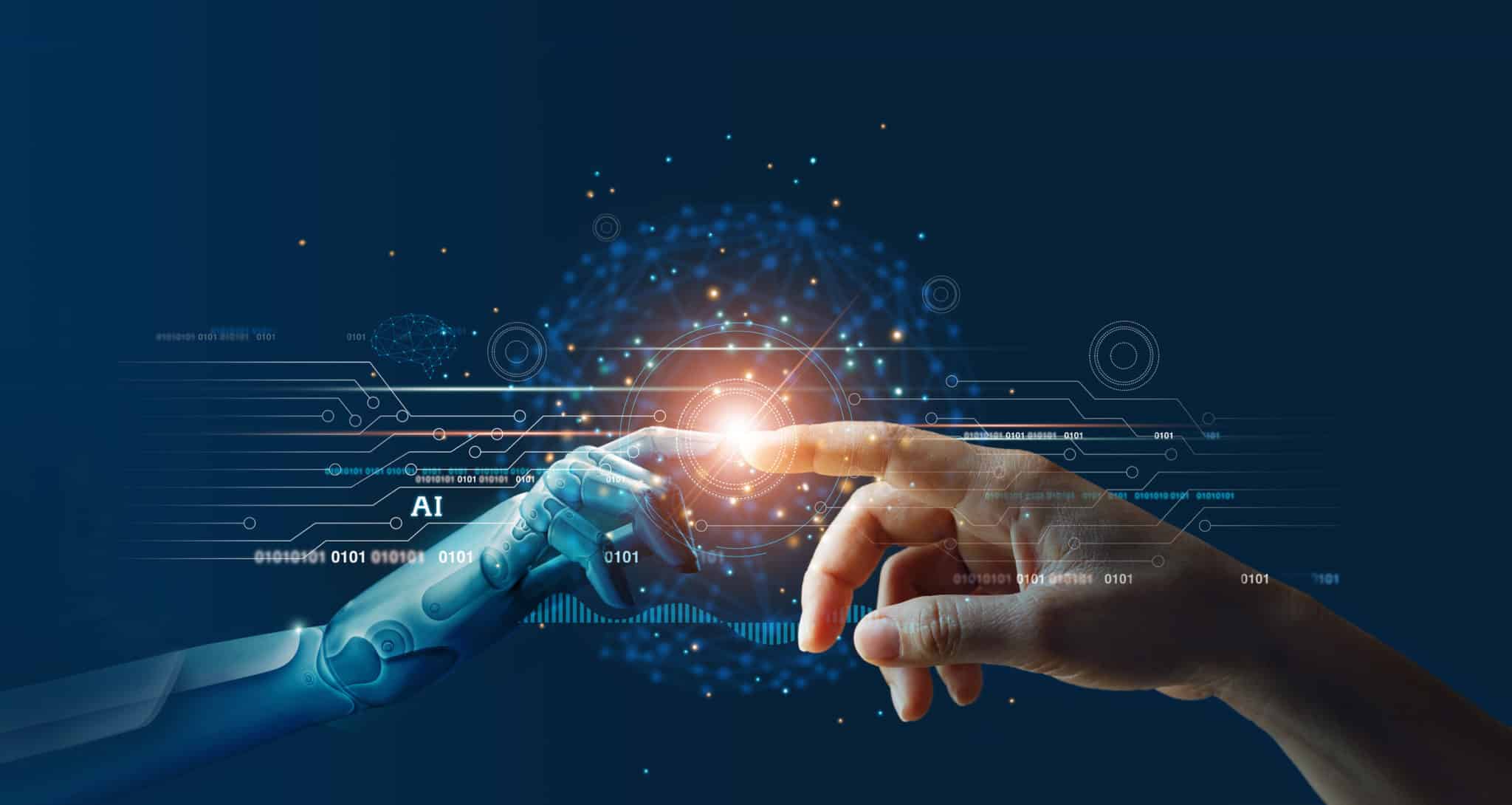

 AI, Machine learning, Hands of robot and human touching on big data network connection background, Science and artificial intelligence technology, innovation and futuristic.
AI, Machine learning, Hands of robot and human touching on big data network connection background, Science and artificial intelligence technology, innovation and futuristic.
TONO opens the door for Norwegian songwriters, composers, and lyricists to register new music created in collaboration with artificial intelligence.
/ 28/10/2024 / Kristian DugstadOn 10 October, TONO launched guidelines on how songwriters, composers, and lyricists can claim rights to music created with artificial intelligence.
“Music creators have always been early adopters of new technology. For many songwriters, composers, and lyricists, artificial intelligence provides new tools that can support their creative process. We want to take a clear stance, which is why we have developed clear guidelines for songwriters, composers, and lyricists who use AI in their creative work,” says Karl Vestli, CEO of TONO.
You can read the guidelines here. TONO’s new AI guidelines are part of a larger Nordic initiative, with TONO’s sister societies Koda (Denmark), Teosto (Finland), Stim (Sweden), and Stef (Iceland) also implementing similar rules.
The new guidelines emphasize that only humans can hold copyright. This aligns with both Norwegian and international law, which stipulate that copyright can only be attributed to human creativity. In Norway, copyright is regulated under the Copyright Act.
“As long as human music creators contribute their own creative input, they are free to use any legal AI tools in their music creation and receive copyright for the music,” says Vestli. If either the lyrics or composition of a musical work is 100% AI-generated, without creative human input, the work can still be registered with TONO. In such cases, however, the creator will not receive rights to the AI-generated part, only to the part they contributed to themselves. Music works that are entirely AI-generated cannot be registered with TONO or other Nordic collecting societies.
Although music creators are free to use legal AI tools in their work, some challenges remain. Several AI companies are not transparent about the music and data they use to train their services and models.
“We encourage all music creators to be mindful of which AI tools they use. When AI services do not disclose the training material they’ve used, you risk infringing both your own and others’ copyrights without realizing it. All members are responsible for ensuring that the works they register are their own,” says Vestli.
TONO and our sister societies work internationally to legislate for transparency around training materials and thereby secure payment for our members. “Music creators have always been early adopters of new technology. For many songwriters, composers, and lyricists, artificial intelligence provides new tools that can support their creative process. We want to take a clear stance, which is why we have developed clear guidelines for songwriters, composers, and lyricists who use AI in their creative work,” says Karl Vestli, CEO of TONO.